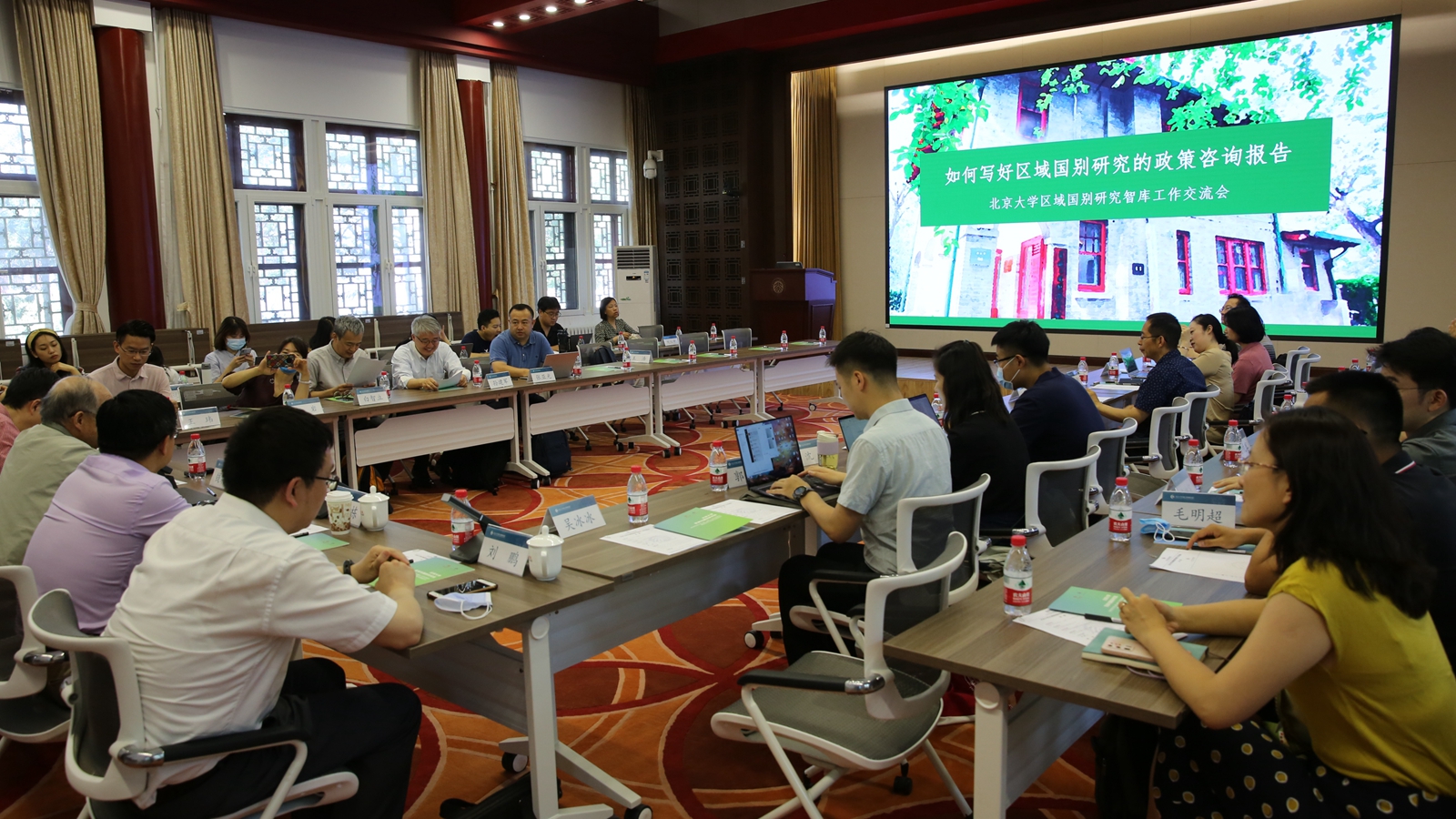An area studies think tanks exchange meeting was held at Peking University on June 22, 2021. The meeting, hosted by the Institute of Area Studies (PKUIAS), aimed at further promoting the construction of a new type of think tanks in area studies at PKU and improving the function of think tanks in giving advice to policy making. Participating in the meeting were Qian Chengdan, director of PKUIAS; Zhai Kun, deputy director of PKUIAS; Wang Dong, deputy director of the Office for Humanities and Social Sciences; Liu Peng, deputy director of the Party Office & President's Office; and Jin Ge, director of the Theory Office of PKU's Party Committee Propaganda Department, among other 39 representatives from area studies centers.
In his remarks, Prof. Qian Chengdan said that the meeting was focused on sharing and communicating how to better write area studies policy consultation reports. It was a follow-up to the PKU Area Studies Exchange Meeting held on April 12, 2021, and a response to and implementation of the requests raised by the area studies centers at that meeting.

Wang Dong introduced the history and present situation of PKU's think tank construction, including the construction and latest development of PKU's think tank work team, "Double First-Class" Initiative and PKU Think Tank Reports. Liu Peng introduced the situation of the university's submission of decision-making consultation information and shared his experience from the perspective of style, topic design, and structure of the submitted materials and how to improve the odds of being accepted and adopted. Jin Ge introduced the characteristics of the construction of think tanks at PKU and the construction of reporting channels. Combining specific cases, he also analyzed in depth and detail how to transform research results into practical use. Zhai Kun shared six advantages that PKU's scholars have in writing area studies policy reports, and how to develop academic research into policies and suggestions that serve the country.
After the presentations, the attendees from area studies centers engaged in detailed exchanges and discussions on the experience shared by the four presenters, and put forward expectations and suggestions on how to improve the effectiveness of area studies think tanks.


